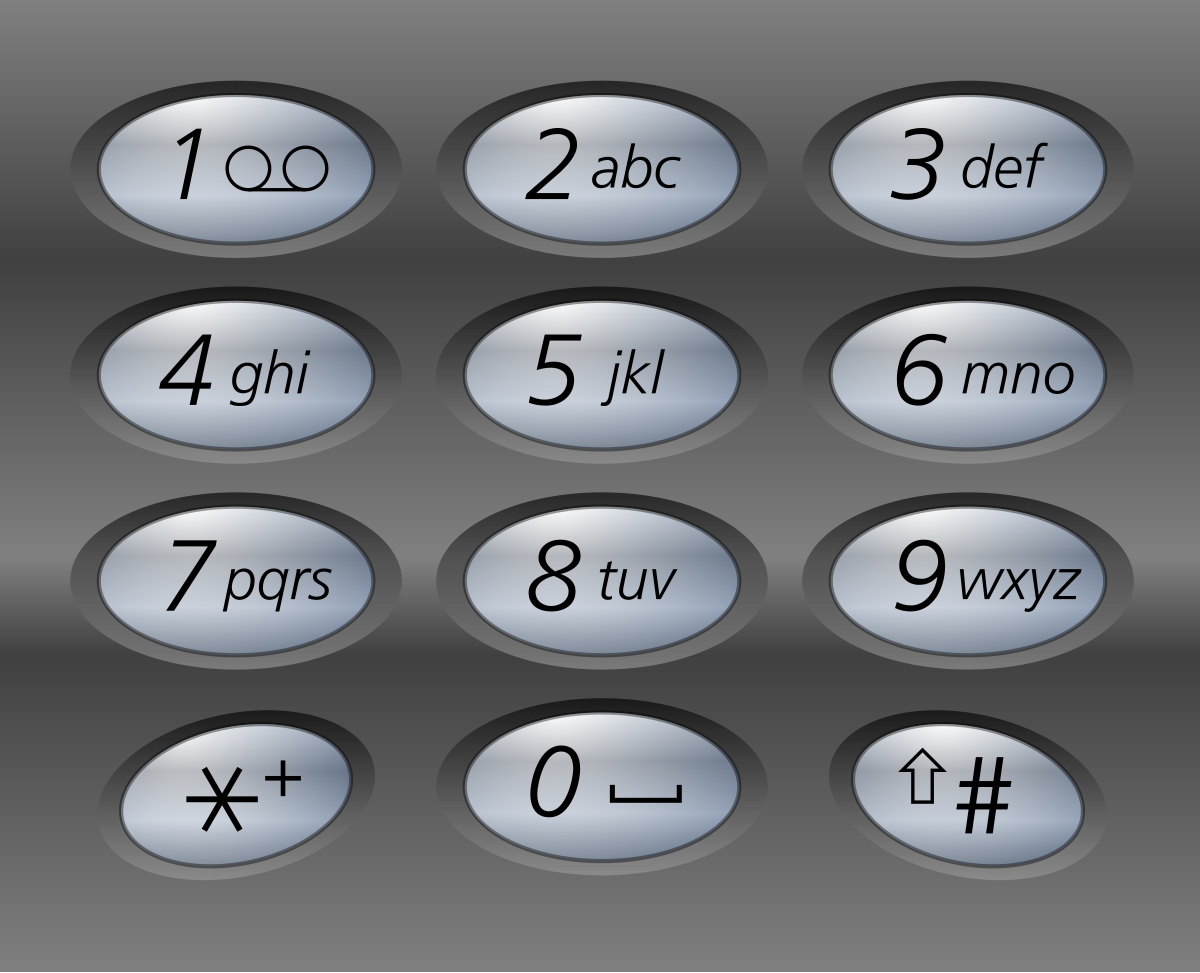Problem
Alice is texting Bob using her phone. The mapping of digits to letters is shown in the figure below.

In order to add a letter, Alice has to press the key of the corresponding digit i times, where i is the position of the letter in the key.
For example, to add the letter
's', Alice has to press'7'four times. Similarly, to add the letter'k', Alice has to press'5'twice.Note that the digits
'0'and'1'do not map to any letters, so Alice does not use them.
However, due to an error in transmission, Bob did not receive Alice's text message but received a string of pressed keys instead.
- For example, when Alice sent the message
"bob", Bob received the string"2266622".
Given a string pressedKeys representing the string received by Bob, return **the *total number of possible text messages* Alice could have sent**.
Since the answer may be very large, return it modulo 10^9 + 7.
Example 1:
Input: pressedKeys = "22233"
Output: 8
Explanation:
The possible text messages Alice could have sent are:
"aaadd", "abdd", "badd", "cdd", "aaae", "abe", "bae", and "ce".
Since there are 8 possible messages, we return 8.
Example 2:
Input: pressedKeys = "222222222222222222222222222222222222"
Output: 82876089
Explanation:
There are 2082876103 possible text messages Alice could have sent.
Since we need to return the answer modulo 10^9 + 7, we return 2082876103 % (10^9 + 7) = 82876089.
Constraints:
1 <= pressedKeys.length <= 10^5pressedKeysonly consists of digits from'2'-'9'.
Solution (Java)
class Solution {
public int countTexts(String pressedKeys) {
int len = pressedKeys.length();
long dp0 = 1L;
long dp1 = 0;
long dp2 = 0;
long dp3 = 0;
long dp4;
char[] keys = pressedKeys.toCharArray();
int base = 1000000007;
for (int i = 1; i < len; i++) {
int r = keys[i] - '0';
dp4 = dp3;
dp3 = dp2;
dp2 = dp1;
dp1 = dp0 % base;
dp0 = dp1;
dp0 += (i - 1 == 0 && keys[i] == keys[i - 1]) ? 1 : 0;
if (i - 1 <= 0 || keys[i] != keys[i - 1]) {
continue;
}
dp0 += dp2;
dp0 += (i - 2 == 0 && keys[i] == keys[i - 2]) ? 1 : 0;
if (i - 2 <= 0 || keys[i] != keys[i - 2]) {
continue;
}
dp0 += dp3;
dp0 += (i - 3 == 0 && keys[i] == keys[i - 3] && (r == 7 || r == 9)) ? 1 : 0;
if (i - 3 <= 0 || keys[i] != keys[i - 3] || (r != 7 && r != 9)) {
continue;
}
dp0 += dp4;
}
return (int) (dp0 % base);
}
}
Explain:
nope.
Complexity:
- Time complexity : O(n).
- Space complexity : O(n).